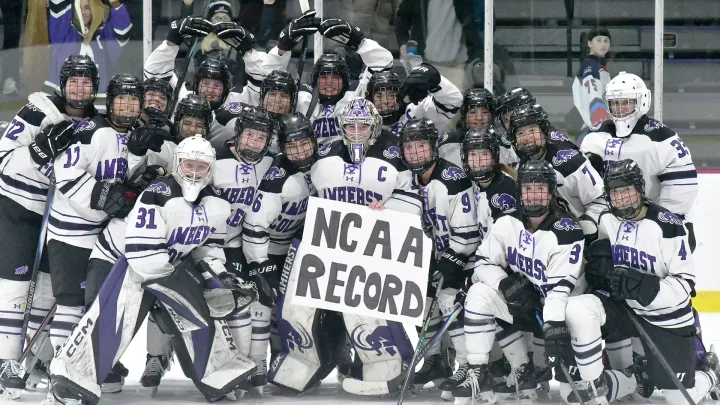Super League, LIV: How (Not) To Resist Big Money in Sports
As enormous sums of money continue to flow into the world of sports, Managing News Editor Leo Kamin ’25 compares the failed European Super League and the rise of LIV Golf, drawing lessons from their diverging fates.

For me and many other fans, sports are a distraction from the everyday world. When you watch a game, discuss the latest trade rumors, or reminisce about players from days gone by, you’re transported into a made-up but very real world lovingly shared by millions.
In a larger world constantly in flux, and in an era of my life more in flux than ever before, the solid rhythm of the sports world has provided me with much-needed stability. There will be football and soccer games every weekend. The NBA Finals will be in June. The Masters will be held in April. The Wimbledon final will be contested in July.
Sports allows us to tap out from “the real world” — whether that be me watching football in Frost instead of working on a Sunday afternoon in 2022, or Londoners packing soccer grounds amid constant threats of air raids during the Battle of Britain in 1940.
However, the last few years should serve as a reminder to us that although sports distract from the real world, they exist within it. We have seen the same forces that are wreaking havoc on broader society — the outsized power wielded by those with massive fortunes and the subversion of all other concerns to those of profit — begin to claw at the sports world.
Two recent examples illustrate this problem: the ill-fated proposal for a new European Super League in soccer, and the newly formed competitor to the PGA Tour — LIV Golf. A comparison between these cases illustrates how the power of big money is best resisted — both inside sports and beyond.
In April 2021, 12 of the best soccer teams in the world announced that they would form a new continent-wide league in Europe to rival the beloved UEFA Champions League. The so-called “European Super League” would provide guaranteed slots to the 12 founding teams — as opposed to the Champions League, where even the biggest teams must earn their places by doing well in their domestic (home) leagues every season.
The league was touted as a way for fans to see the biggest stars and the best teams play on a consistent basis, but it was surely put forward so that the largest clubs could reliably count on the massive advertising revenue that comes from consistent European competition.
The proposal immediately drew ire from fans across the continent, even those of the teams that would hold automatic league membership. They took to the streets and social media, and within 48 hours the proposal was scrapped, as team owners recorded sheepish apology videos.
Though everything took place across the pond, the venture had a decidedly American taste to it, considering that three of the five chairmen of the league were American billionaires — Joel Glazer, owner of Manchester United and the Tampa Bay Buccaneers; John Henry, owner of Liverpool F.C. and the Boston Red Sox; and Stan Kroenke, owner of Arsenal F.C., the Los Angeles Rams, and the Colorado Avalanche. American investment giant JPMorgan provided around $4 billion in financing for the project.
It is hard to overstate the extent to which the Super League was an attack on the very basis of European soccer. Most European teams have existed for more than a century. Many have working-class pasts, like Arsenal, which was founded by workers from the Woolwich Arsenal Armament Factory in London. The basis of all European leagues is meritocracy — in that even the biggest teams can be, and often have been, relegated to lower division if they fail to perform. The Super League, anti-meritocratic and greedy, spit in the face of all of that.
When the announcement of a new circuit — LIV Golf – designed to challenge the hegemony of the PGA Tour dropped in October 2021, it was impossible not to make the comparison to the Super League. LIV aimed to mix up what it saw as the dusty, boring format of the PGA Tour, with simple four-day tournaments every weekend, by introducing match play and team competitions.
However, its real sell — at least to the players — was the fat wads of Saudi-Arabian cash. The circuit is funded by the Saudi sovereign wealth fund — one of the largest funds of any kind in the world. The prize money at LIV events is higher than in the PGA. Mirroring the anti-meritocratic bend of the Super League, LIV golfers are able to take home large prizes even when they place poorly. It has offered preposterously large contracts to induce PGA golfers to make the jump. Tiger Woods was reportedly offered $700-$800 million to do so.
Charl Schwartzel, who joined the breakaway tour, made it clear: “You can’t lie it’s not about the money. There’s a lot of money out there and it’s more than any guy has ever played for.”
The new tour has made golf less enjoyable. The fields at PGA and LIV events are now worse than the fields at PGA events were before the split. And, there is constant friction about whether LIV golfers should be allowed to compete in major championships.
The fans do not seem to be loving it — tickets to the events are going for $1 on secondary markets, and the Tour’s Facebook Live stream receives less than 1,000 concurrent viewers — but of course nobody cares about this.
The players who joined seem to recognize the immorality of the league. In itself, leaving the tour takes away from the central appeal of professional golf, where the attraction lies in the ability to watch all of the best in the world go at each other. On top of this is the questionable act of accepting Saudi money. The Saudis have built their wealth by extracting planet-warming fossil fuels, and maintained their regime through vicious repression and violence.
The golfers know this — Phil Mickelson recognized the kingdom’s “horrible record on human rights,” calling it “scary,” and pointed to the government’s assasination of Washington Post journalist Jammal Khashoggi as proof. Nevertheless, he described the league as a “once-in-a-lifetime opportunity.” “An opportunity for what?” one might ask. But the answer is obvious.
It would be better if the schism had been caused by misguided idealism, by a clash of two legitimate visions of what golf should be. But the LIV challenge seems to have been concocted out of nowhere — driven overwhelmingly by the Saudi government’s desire to “sportswash” its human rights abuses, its investment fund’s desire to drive returns, and the greed of many (already wealthy) professional golfers.
Why did these two seemingly similar money grabs play out so differently? The Super League has been banished to the novelty “do you remember when…” bin of sports history, while the golf world careens toward an uncertain and unhappy future.
The answer lies in the fan bases of the two sports. European soccer fandoms have long-standing and robust institutional structures. Soccer fans are used to gathering en masse, traveling to away games, packing squares in foreign cities ahead of cup finals, and singing in unison. Golf fans are mostly old, white, rich, and disengaged, and due to a lack of teams, there are no fan bases, fan clubs, or histories of fan activism.
Soccer fans were prepared to broadcast their fury far and wide, putting pressure on the teams and other institutions who supported the Super League. Soccer fans often stage protests against their team's owners and managers. They knew what to do, where to go, and who they would be with when the news of the Super League dropped.
A large majority of individual golf fans seemed to be upset with what had happened with the LIV tour, but no institutions existed to allow them to combine their voices and put pressure on the players, the new tour, and the companies that supported it.
These two instances should serve as examples to even non-sports fans (who certainly have not made it thus far). We can expect more Super Leagues and LIV tours in the coming years, whether in the world of sports, as those with large amounts of money seek to upend other leagues, or in the more metaphorical sense — as the ultra-wealthy lay waste to America’s political institutions, middle and lower classes, and the planet the same way they tore apart the PGA tour.
The different experiences of golf and soccer fans show that we cannot expect a determined resistance to magically materialize when bad things happen. Right-thinking majorities do not turn into forceful social and political movements on their own. They require groundwork — institutions formed, connections made, habits formed before a crisis arises.
Our future is sure to be one of many sporting and political challenges. Whether or not they are conquered depends less on what we do then and more on what we start doing now.




Comments ()